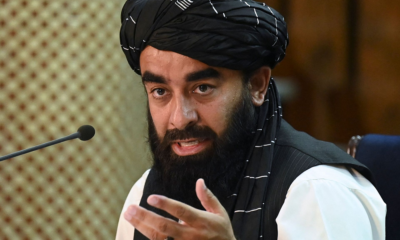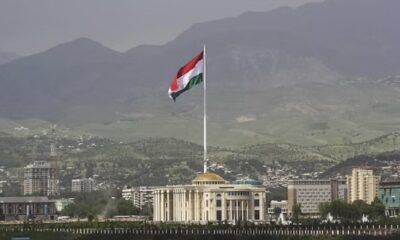Latest News
‘Stop the War’, Says Exhausted Helmand Peace Convoy After Arriving in Kabul

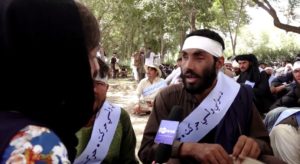 Dozens of peace marchers arrived in capital Kabul on Monday, after spending the fasting month of Ramandan and crossing some 700 kilometers on foot from Helmand province, calling for an end to nearly 17-year old war in the country.
Dozens of peace marchers arrived in capital Kabul on Monday, after spending the fasting month of Ramandan and crossing some 700 kilometers on foot from Helmand province, calling for an end to nearly 17-year old war in the country.
The peace convoy have crossed Kandahar, Zabul, Ghazni and Maidan Wardak provinces and reached to Kabul after 38 days.
The march kicked off in Lashkar Gah, the capital of southern Helmand province, which is largely under the Taliban control.
“We want peace in Afghanistan, and ceasefire between the government and Taliban, ” said Zir Mohammad, a blind member of the convoy.
“We don’t want our children to be orphans and our wife be a widow,” said another member of the convey, Mohammad Omar from Maidan Wardak province. “If our demands were not addressed we will go to other provinces and will continue to walk across Afghanistan.”
It began with a group of eight men and it reached to over a hundred when it arrived in Kabul.
Head of the convoy Iqbal Khyber said that despite of challenges and issues they would continue the move.
“We have been welcomed by the people in each provinces as we have reached. We will continue our move until our voice of peace being heard,” he said.
The convey arrived in Kabul following a three-day ceasefire between the Taliban and government forces coinciding with the Eid al-Fitr Muslim holiday that comes at the end of holy month of Ramadan.
The government extended its ceasefire by 10 days, but the Taliban said that they would resume their attacks across the country.
Latest News
Deputy interior minister for counter-narcotics travels to Uzbekistan
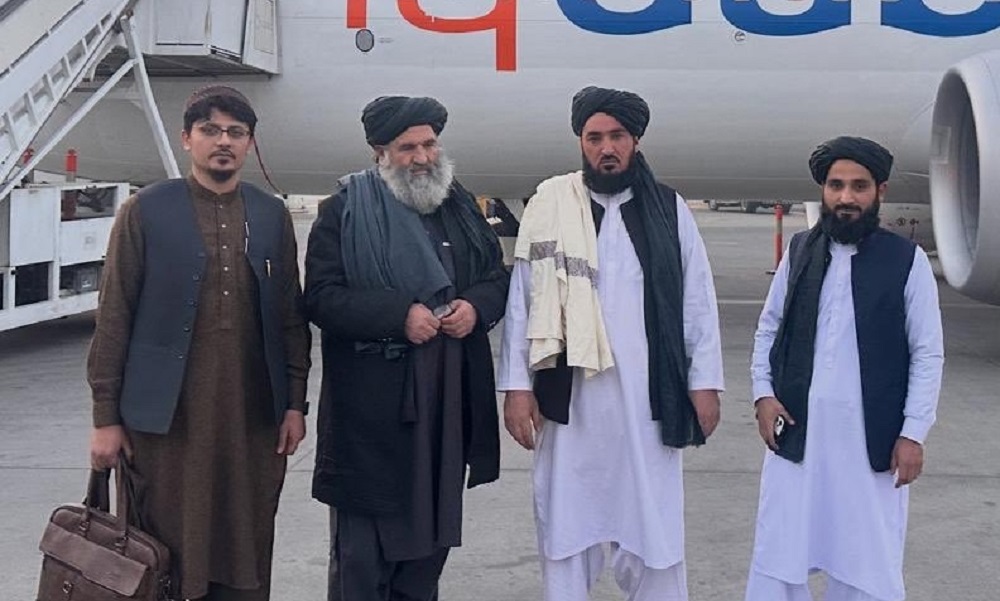
Abdul Rahman Munir, the Deputy Minister for Counter-Narcotics at the Ministry of Interior, traveled to Uzbekistan this afternoon along with his accompanying delegation.
According to a statement from the Ministry of Interior, the purpose of the trip is to participate in a meeting of member countries of the Central Asian Regional Information and Coordination Centre for Combating Drugs (CARICC).
The statement added that the meeting will be held on December 5 of this year in the city of Samarkand, Uzbekistan.
Latest News
Imran Khan accuses Army Chief of ‘igniting’ Pakistan–Afghanistan tensions
In his post, written in Urdu, Khan said: “Asim Munir’s policies are disastrous for Pakistan. Because of his policies, terrorism has spiralled out of control, which grieves me deeply.”
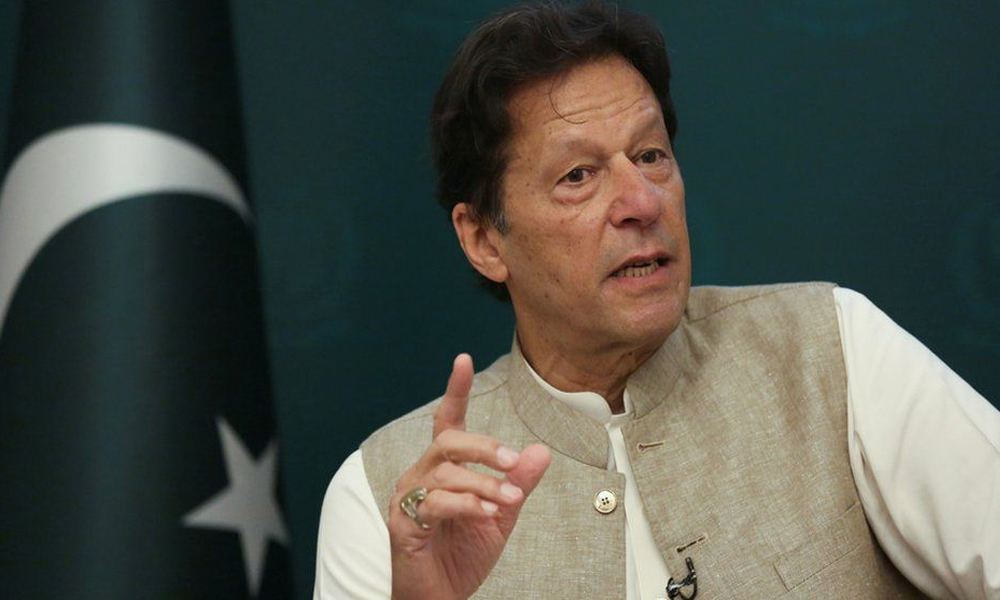
Former Pakistani prime minister Imran Khan has accused Army Chief Asim Munir of deliberately “igniting tensions” with Afghanistan, calling his policies “disastrous” for Pakistan.
The 73-year-old former cricketer, who has been imprisoned since 2023, issued the remarks through his official account on the social media platform X. His statement was shared a day after his sister, Uzma Khan, met him at Rawalpindi’s Adiala Jail following “special permission” granted by the government led by Shehbaz Sharif.
In his post, written in Urdu, Khan said: “Asim Munir’s policies are disastrous for Pakistan. Because of his policies, terrorism has spiralled out of control, which grieves me deeply.”
He further alleged that the army chief’s actions were motivated by a desire to please Western governments, saying Munir had “deliberately ignited tensions with Afghanistan so he could be seen internationally as a so-called ‘mujahid’.”
The founder of the Pakistan Tehreek-e-Insaf added that he had long opposed “drone attacks and military operations against our own people,” arguing such tactics would only worsen militancy. Khan claimed Munir first “threatened Afghans,” then oversaw the expulsion of refugees and the launching of drone strikes, the consequences of which he said were now visible in rising violence.
Khan also launched a personal attack on the army chief, calling him “mentally unstable” and accusing him of presiding over the “collapse of the Constitution and rule of law in Pakistan.”
He alleged that, on Munir’s orders, he and his wife had been imprisoned on fabricated charges and subjected to “the worst form of psychological torture.”
Khan said he had been held in solitary confinement for four weeks, with no human contact and without basic entitlements provided under the jail manual. He added that despite court directions, access to political colleagues, lawyers and family members had been blocked.
Referring to an incident involving another sister, Noreen Niazi, he said she was “dragged on the road” while trying to meet him.
Khan praised Khyber Pakhtunkhwa Chief Minister Sohail Afridi for choosing “resistance over compromise” and urged him to “continue to play on the front foot.” He added that those threatening to impose governor’s rule in the province should “do it today rather than tomorrow and then watch what happens.”
An undeclared ban on meetings with Khan had fuelled speculation about his health. After visiting him, Uzma Khan said he was “perfectly fine” physically but was being subjected to “mental torture” in solitary confinement.
International Sports
ILT20: Livingstone powers Knight Riders to 39-run win over Warriorz
Livingstone’s blitz propelled the Knight Riders to 233/4, the second-highest total in tournament history. H

Liam Livingstone launched DP World ILT20 Season 4 in spectacular fashion, smashing an unbeaten 82 off 38 balls — including a record 33 runs in the final over — to fire the Abu Dhabi Knight Riders to a commanding 39-run victory over the Sharjah Warriorz at the Sharjah Cricket Stadium on Wednesday.
Livingstone’s blitz propelled the Knight Riders to 233/4, the second-highest total in tournament history. His onslaught at the death featured five sixes in the final over off Dwayne Pretorius, with four coming consecutively.
The innings had been well-set earlier by Alex Hales (32 off 19) and Alishan Sharafu (34 off 23), who provided a fast start after Michael Pepper’s short cameo. Sherfane Rutherford (45 off 27) then combined with Livingstone in a 95-run stand that kept the momentum surging. Adil Rashid was the standout bowler for the Warriorz, claiming 2/31.
Chasing 234, the Warriorz faltered early, losing Johnson Charles, Tom Abell and Tom Kohler-Cadmore in the first seven overs to slump to 56/3.
Tim David mounted a fierce counterattack, blasting 60 off 24 and hammering three straight sixes off Piyush Chawla to revive hopes. But with wickets falling around him — including Sikandar Raza (8) and Dinesh Karthik (5) — the pressure mounted. Ajay Kumar ended David’s charge in the 13th over, finishing with impressive figures of 1/22.
With nearly 20 an over required in the final stretch, the chase fizzled despite late hitting from Pretorius (39 off 20) and Adil Rashid (25 off 11). Their cameos pushed the Warriorz to 194/9, still well short of the target.
Earlier Highlights
Pepper opened brightly with three boundaries, but Pretorius removed him early. Hales and Sharafu kept the scoreboard moving before Rashid’s twin strikes broke the stand. Livingstone and Rutherford then dominated the middle overs, taking 19 off both Raza and Pretorius to set up the explosive finish.
Andre Russell chipped in with an unbeaten 11 from just four balls, partnering Livingstone in a 50-run stand off only 13 deliveries.
Reactions
Player of the Match, Liam Livingstone:
“The boys up top set a great platform. It took me a while to adjust, but once I found my rhythm at the end, it came out nicely.”
Sharjah Warriorz captain, Tim Southee:
“Against a lineup like that, you have to take wickets. We couldn’t do that in the middle or at the death. Credit to the Knight Riders — they were outstanding.”
Brief Scores
Abu Dhabi Knight Riders 233/4 (20 overs):
Livingstone 82*; Rutherford 45; Sharafu 34; Rashid 2/31; Netravalkar 1/33
Sharjah Warriorz 194/9 (20 overs):
David 60; Pretorius 39; Rashid 25; Garton 2/24; Stone 2/37; Russell 2/48
Result: Knight Riders won by 39 runs
Player of the Match: Liam Livingstone
Fan Zone
Cricket fans across Afghanistan can tune in daily to watch this exciting event live and exclusively on Ariana Television. For details and times of fixture visit ATN and Ariana News social media pages.
-

 Business5 days ago
Business5 days agoTorkham crossing likely to reopen on humanitarian grounds
-

 Latest News5 days ago
Latest News5 days agoPakistan says planned military action against Afghanistan was halted at Qatar’s request
-
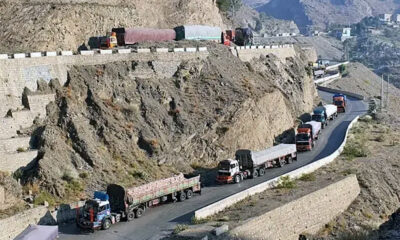
 Business5 days ago
Business5 days agoAfghan-Pakistani land port closures strangle import-export trade sector
-
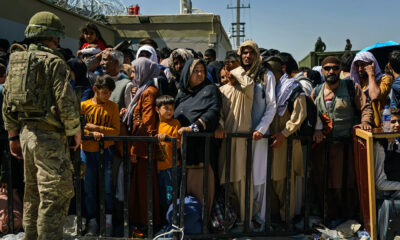
 Latest News5 days ago
Latest News5 days agoThousands of Afghan evacuees flagged for security concerns in US since 2021
-

 Sport5 days ago
Sport5 days agoAfghanistan U19 and India A U19 share tri-series trophy after final washed out
-

 World5 days ago
World5 days agoFour dead after 14 people shot at family gathering in Stockton, California
-

 International Sports3 days ago
International Sports3 days agoStar-studded squads set to ignite DP World ILT20 Season 4
-
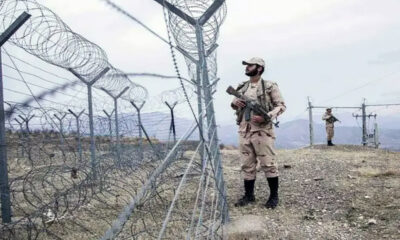
 Latest News3 days ago
Latest News3 days ago10 Afghans killed in Farah border shooting by Iranian forces


